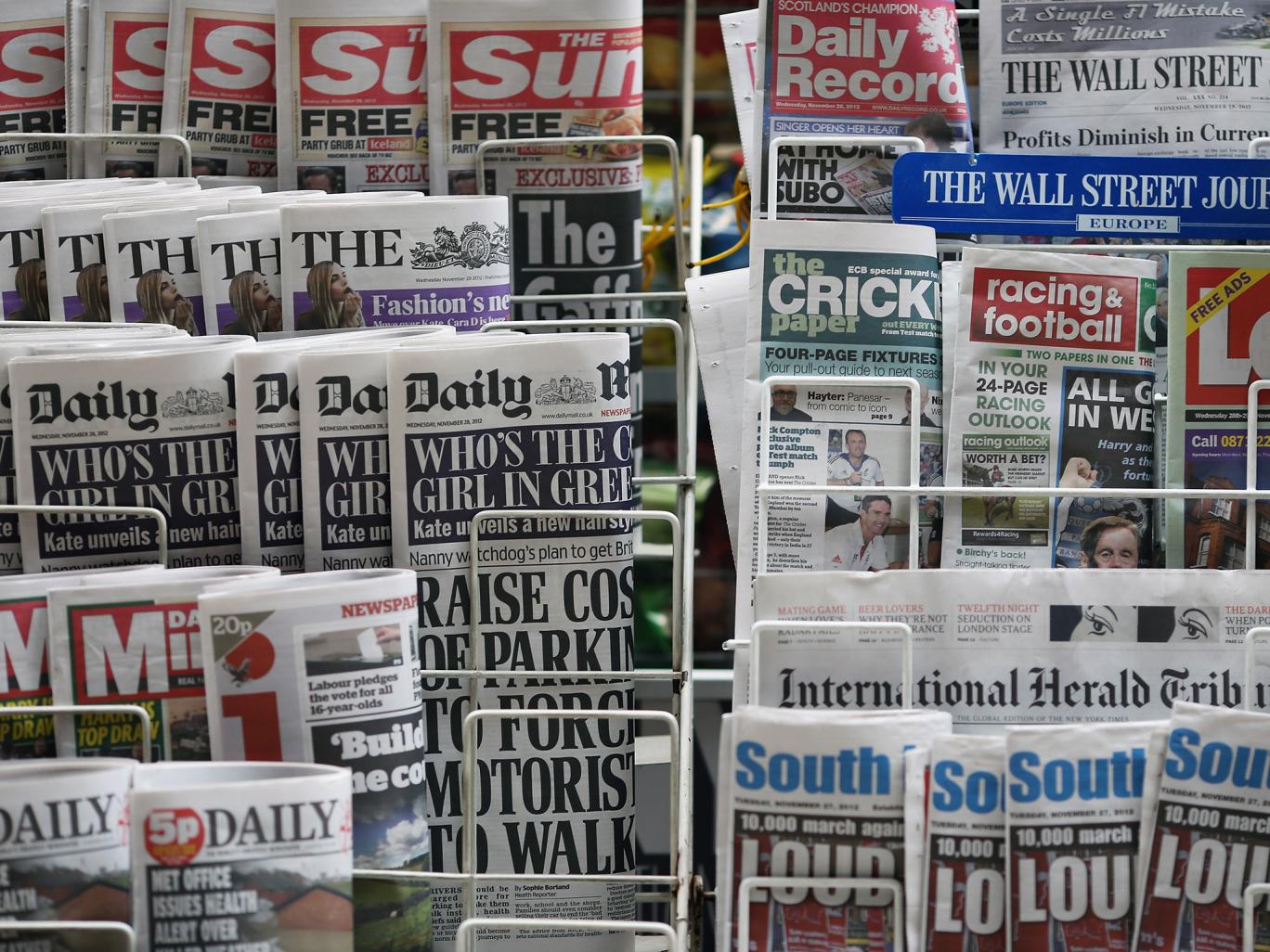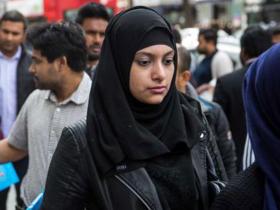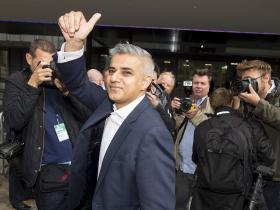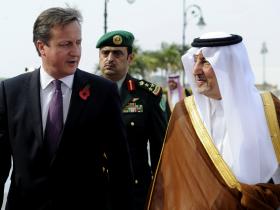
MEDIA
UK: Poor reporting, media illiteracy fuel Islamophobia
Imbalanced reporting on Muslims and British Islamic community's media illiteracy contribute to "hostility", study says.
Anealla Safdar | 29 Mar 2016 18:31 GMT |
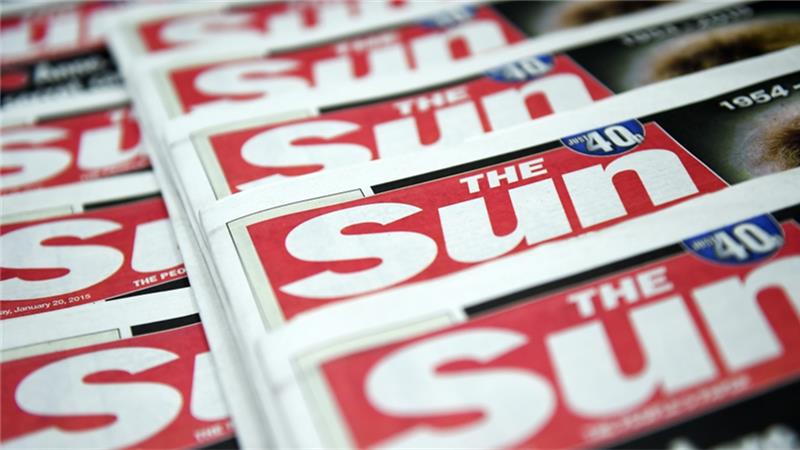
Britain's press regulator censured The Sun for a 'significantly misleading' story about Muslims after the Paris attacks [Reuters]
The way the UK's mainstream media covers certain issues relating to Muslims and the British Islamic community's inability to represent itself are contributing to rising Islamophobia, recent research suggests.
Developed across the University of Cambridge, research conducted over 2015 led to a roundtable at the House of Lords in January that discovered an "atmosphere of rising hostility" towards the country's 2.7 million Muslims, who comprise less than 5 percent of the 64 million-strong population.
Meanwhile, the two factors meant more Muslims were seeking news from other sources such as television or radio stations from their countries of origin.
"British minority group disaffection with local media is encouraging their members to turn to media from their regions of origin, which may be concerning for government," said Roxane Farmanfarmaian, principal at the university's Centre of the International Studies of the Middle East and North Africa.
Farmanfarmaian also heads the University of Cambridge-Al Jazeera Media Project, an initative independent of Al Jazeera Media Network.
"Many Muslim communities don't have media literacy," Farmanfarmaian told Al Jazeera on Tuesday.
The report - titled Media, Faith and Security: Protecting freedom of expression in religious context - found "the Muslim community's fragmentation and lack of professional training in working with the media means it is ill-equipped to counter negative narratives by promoting more balanced reporting.
"The outcome is a serious breakdown in the multicultural agenda."
'Atmosphere of hostility'
Following recent attacks across Europe and the Middle East - including the shootings in January 2015 at the offices of the Charlie Hebdo magazine in Paris, deadly violence across the French capital in November 2015, and the twin attacks in Brussels earlier this month - Muslims tend to feel judged by the media, Farmanfarmaian added, as many equate the Islamic faith with "terrorism".
"What they expressed was that they felt they were being judged, they were in the headlines, the atmosphere of hostility was very stark," she said. "That rises at times of crises, then it will drop... [Muslims] were not understood; the nuances were not clear. They felt they were targeted and blamed."
For example, in November following the Paris attacks, a mass-selling British tabloid claimed in an exclusive poll that one in five British Muslims sympathised with "jihadis".
The Sun published a picture of Mohammed Emwazi, the British executioner with the Islamic State of Iraq and the Levant group (ISIL, also known as ISIS) known as Jihadi John, alongside the shock headline.
Britain's press regulator censured The Sun earlier in March for the "significantly misleading" story.
To combat the negative impact the media could have on Muslims and to "stem the slide towards an increasingly divided society", the roundtable discussion made 10 recommendations.
The advice includes appointing a well-recognised Muslim role model as a media relations officer at the consultative level; supporting media outlets to employ community relations reporters; and getting clear definitions of "radicalisation" circulated across law and enforcement agencies while setting guidelines to protect individuals from "agency profiling".
The Right Lord Ahmad of Wimbledon, Home Office Minister on the Counter-Extremism Strategy, has said he would share the findings with ministers of immigration, culture, media and sport.
Lack of inclusion
Miqdaad Versi, assistant secretary general of the Muslim Council of Britain, one of the UK's largest Muslim umbrella organisations, said the media and broader society needs to do more to counter "bigotry".
"We need to work together so that bigotry is slowed down, and we need to work together to challenge bigotry wherever we find it. If we don't ... we will all be worse off," he told Al Jazeera.
He added that Britain's media lacks inclusion, explaining that diversity in newsrooms "will always improve coverage".
A recent survey conducted in December 2015 by City University, London, found that 0.4 percent of British journalists identified as Muslim or Hindu, 31.6 percent were Christian, and 61.1 percent had "no religion". Meanwhile, 0.2 percent were Black, 2.5 percent Asian, and 94 percent Caucasian.
"There is an underrepresentation of Muslims working in the media," said Versi.
He added that religious illiteracy was "rife" within parts of Britain's media, which exacerbated the trend of Islamophobia.
"Those who write don't necessarily understand the concepts being discussed," he said. "We need to build awareness and improve on literacy."
He also recommended that strong regulation of the press was needed to protect communities, while citing The Sun's headline as an example of how a story can "shape the news for days".
Follow Anealla Safdar on Twitter: @anealla
Source: Al Jazeera
You can read the article on the Al Jazeera site here
Read also the Independent article:

Voices
Why the British media is responsible for the rise in Islamophobia in Britain
Less than 0.5 per cent of journalists in the UK are Muslim. No wonders so many misleading stories make the cut
Miqdaad Versi Monday 4 April 2016
